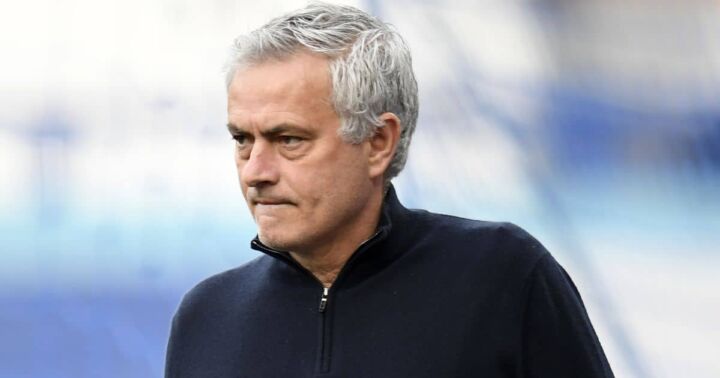Benfica manager Jose Mourinho has said that he feels like a much better coach than before. He recently had his say while speaking to the press, and fans have been reacting.
According to him, while he used to think more about himself when his career as a football manager started, he has transformed into a coach who is more concerned about his players.

Mourinho added that he has never felt like a genius manager; instead, he has always seen himself as a provocateur.
His words, “A coach is born and dies with the same DNA; he doesn’t have a choice. But as a person, there are differences. Maybe in the beginning, I thought more about myself, and I’ve transformed in a way where, I don’t know, I feel more altruistic.
I feel like I’m in football more to help my players than to think about what will happen to me in a year, two, or three. It’s a natural change that doesn’t distort me as a coach, but as a person, it gives me a different side.
I feel stronger, I feel like a much better coach than before. A coach is better with accumulated experience. There are matches in my career where I felt like I was the one who won.
Because sometimes you have the right ideas, decisions, strategies, sometimes before the game, but other times during. But I’ve never felt like a genius. A provocateur, maybe a bit, but I’ve never felt like a genius or a devil.”
WOW.
Jose Santos Mourinho Félix GOIH is a Portuguese professional football manager and former player who is the current head coach of Italian Serie A club Roma. Dubbed “The Special One” by the British media, Mourinho is one of the most decorated managers ever and is widely considered to be among the greatest managers of all time.
Mourinho was born in 1963 to a large middle-class family in Setúbal (a suburb of the Lisbon metropolitan area), Portugal, the son of José Manuel Mourinho Félix, who was known by the name Félix Mourinho, and his wife, Maria Júlia Carrajola dos Santos. His father played football professionally for Belenenses and Vitória de Setúbal, earning one cap for Portugal in the course of his career.
His mother was a primary school teacher from an affluent background; her uncle funded the construction of the Vitória de Setúbal football stadium. The Carnation Revolution leading to the fall of António de Oliveira Salazar’s Estado Novo regime in April 1974 also led to the family losing all but a single property in nearby Palmela.
Support InfoStride News' Credible Journalism: Only credible journalism can guarantee a fair, accountable and transparent society, including democracy and government. It involves a lot of efforts and money. We need your support. Click here to Donate
